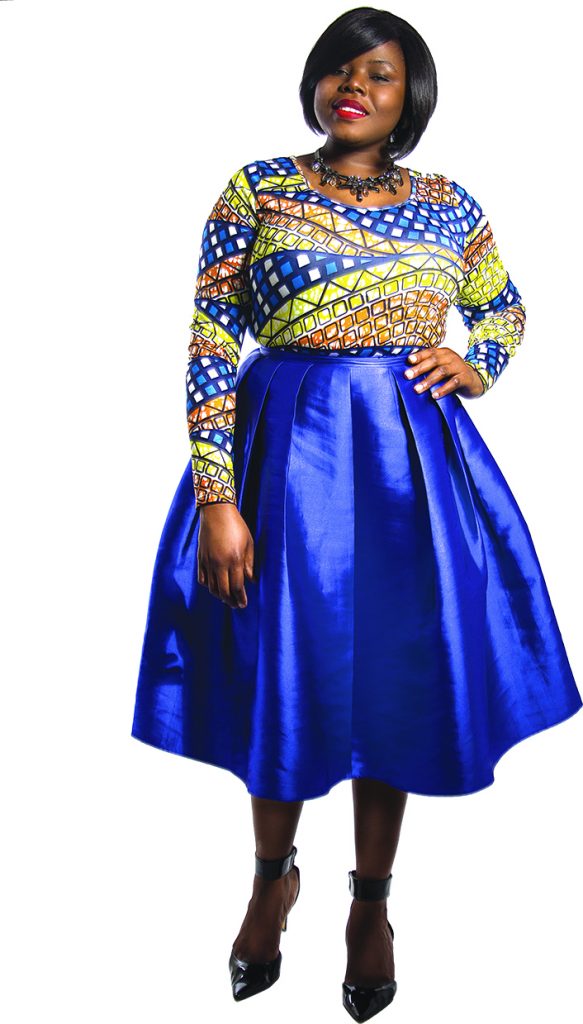On November 4, 2015, plus-size French model Clémentine Desseaux received a $90 gift from Christian Louboutin – a luscious new Rouge Velvet Matte lipstick from the French design house. Louboutin, known for its iconic red-soled heels, entered the beauty business in recent years.
The excited Desseaux posted a 15-second video on her social media account wearing the new lip color, which subsequently was reposted by the brand.
Within minutes, the online world was buzzing with excitement at what it assumed was the ground-breaking new campaign from the Louboutin brand featuring a plus-size model.
Although a false claim, it left a dark cloud hanging over the multi-billion dollar beauty industry – why is it not apparently accepting, yet, of curvier women?
The issue of plus-size models is one that has been highly debated and as a consequence has led to several hashtag campaigns on social media calling for the abolishment of the term. By definition, when a model wears a size greater than 12, she is considered ‘plus-sized’ in the fashion industry. For those against the term, the main argument is in the meaning of the word ‘plus’ which denotes a bigger size than average. Pressure from activists in previous years led to the dissuasion of size zero models who seemed to be the go-to clothes hangers for all major runway campaigns. In the sea of confusing body image messages bombarding women, something needed to be done.
The above paragraphs explain why Linda Ojoma Idegwu, a Nigerian fashion entrepreneur, was the woman to shake things up.
Instead of creating yet another campaign calling her fellow plus-size ‘sisters’ to stand together and fight the system, she decided on a different strategy.
Cue the creation of Dear Curves, which has now come to be a leading plus-size women’s fashion line in Nigeria. For Idegwu, the fight is much bigger than the banning of the term ‘plus-size’.
“I love my body and I am not afraid to be a size 16. I work out and I exercise but I feel being plus-size does not mean you are unhealthy. So I thought it was unfair that the media generalized all plus-size women as unhealthy. For me this is a movement, so it’s not just about clothes, I am very much pro-love and pro-curves and encouraging women to love themselves,” says Idegwu.
The idea was sown in 2012 but germinated a couple of years later after Idegwu tried her hand at different professions including working part time at a retail company in the United Kingdom (UK).
“At the time, it was a hobby. But leaving the UK, I saw there were so many fat-shaming and derogatory statements made about women who were plus-size and I found that very strange because I grew up in a culture where being curvy or plus-size was celebrated.”
In her early years, Idegwu, like every peppy teenager, had dreams of snaring the limelight. The burgeoning Nollywood industry at the time was a melting pot for youthful talent and like many of her peers, Idegwu was determined to leave her mark.
The young Idegwu even featured in a sitcom in Lagos called Twilight Zone but it was her love for fashion that would eventually set her on the course to international acclaim. Her Dear Curves brand has been featured in Vogue Italia and Huffington Post and other notable international publications. For Idegwu, her goal is simple – clothing for women with curves needs to be both fashionable and empowering.
This ethos is at the heart of everything she does. The company was started with £500 of Idegwu’s savings. She learned the sewing trade from her mother who also doubled as a teacher. Being the first of 10 siblings, Idegwu had to be independent from a very early age, which gave birth to her inner entrepreneur.
“Before going to the UK, while I was waiting for admission into school, I was doing my fashion business on the side. I was designing for men, I had a team of two people, where we did a bit of illustrations and created kaftans for men and that was very successful,” she says.
Being a plus-size model herself, Idegwu knows all too well the challenges of securing opportunities in the competitive world of modeling. Fashion retail has come a long way in terms of inclusion of plus-size models in fashion campaigns but the beauty industry still lags significantly behind in following this trend. For Dear Curves, the goal is to be an internationally-recognized brand encouraging women to love themselves no matter their size.
“I want to have a bigger percentage of the plus-size market. We do not have a stand-alone shop yet because we do not feel like we need it yet, but we have some concessions and boutiques who we work with because this is a contemporary affordable luxury brand,” she says.
With plans to expand across Nigeria and then in Ghana, currently, 76% of her orders are from customers in the United States where the average size is 14, according to Idegwu. Her brand is featured in the hit US series, Empire, and as the debate continues to rage on about the future of the plus-size model, Idegwu is now spearheading a new movement calling all women to embrace themselves – and their body type.
